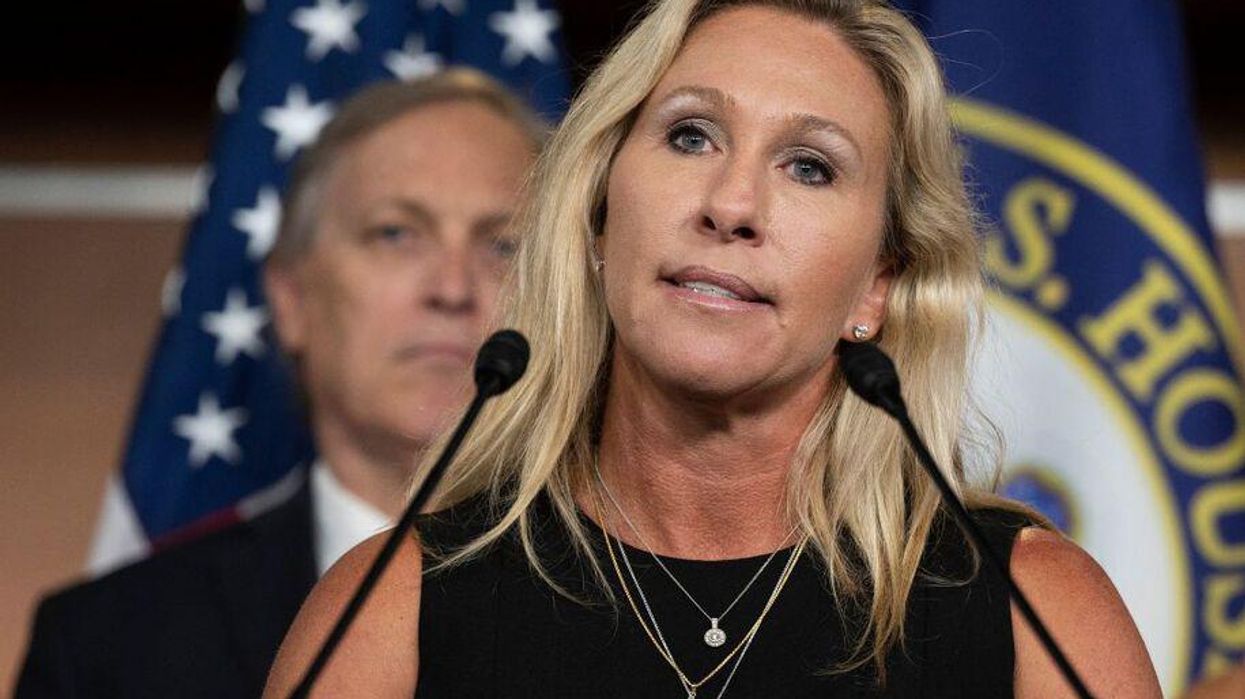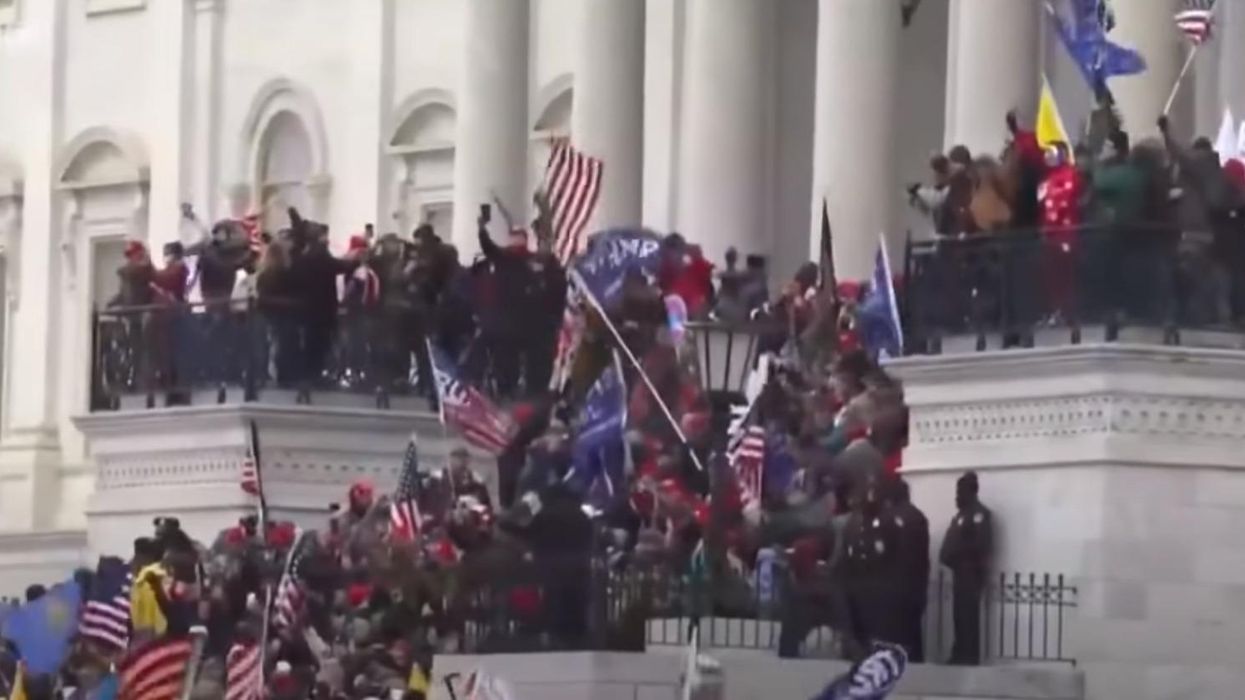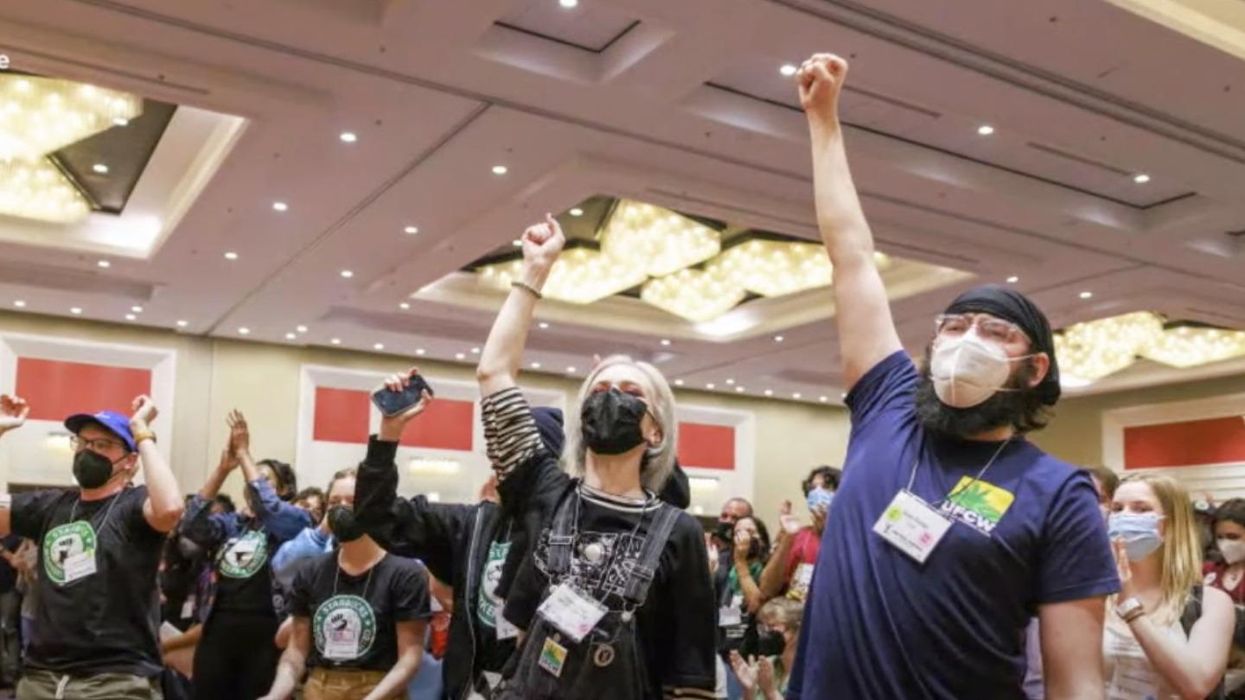Big Firms Including Amazon And Boeing Gave $100M To Election Deniers
In the wake of the insurrection at the US Capitol on January 6, 2021, in which a mob of far-right rioters attempted to violently disrupt Congress' certification of the 2020 Electoral College count, numerous corporations vowed publicly to stop donating to Republicans who supported the rioters' cause.
However, a new report from nonpartisan campaign finance research group Open Secrets shows that corporations have been flooding the campaign war chests of Republican election deniers in Congress, with more than $108 million donated since the insurrection.
"Companies pledged to pull back, but we have not seen that play out," Open Secrets investigations manager Anna Massoglia recently told the New York Times.
To come to that amount, Open Secrets tracked donations to the campaigns of the 147 House and Senate Republicans (also known as the "Sedition Caucus") who voted to overturn the 2020 election the same day supporters of former President Donald Trump ransacked the US Capitol, killing five police officers and injuring hundreds more in the process. Researchers then zeroed in on donations that came from approximately 1,400 business political action committees and trade associations.
According to Open Secrets, PACs and trade groups donated roughly $91.4 million to the Sedition Caucus in the three years since the insurrection, and funded leadership PACs affiliated with Sedition Caucus members to the tune of $16.7 million more. Some of the biggest donors include the National Association of Realtors — a trade group for the real estate industry — the American Bankers Association and United Parcel Service. Other major corporate donors to election deniers include military contractors like Northrop Grumman, General Dynamics and General Atomics.
Notably, many of these donations came from the very same companies that pledged to stop supporting the Sedition Caucus. As journalist Judd Legum reported in his newsletter Popular Information, household name brands like Airbnb, Amazon, AT&T, Boeing and Pfizer publicly vowed to cut off donations to election deniers in 2021. However, Open Secrets found that all of those companies quietly resumed donations, in addition to other companies that pledged to stop supporting 2020 election conspiracy theorists like Comcast, Deloitte, General Motors, Home Depot, Marathon Petroleum, Raytheon and SpaceX, among others.
"Support for these organizations does not represent an endorsement for all issues that the organization supports," General Motors said of a 2021 donation to the Republican State Leadership Committee, which signed a statement in support of election denialism.
Reprinted with permission from Alternet.




